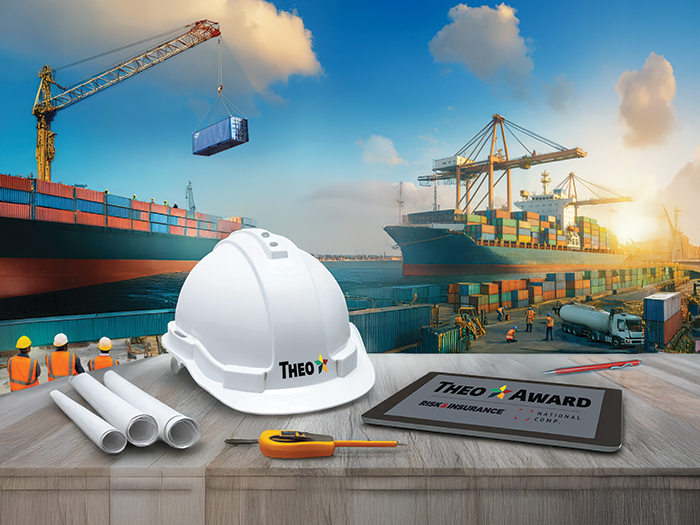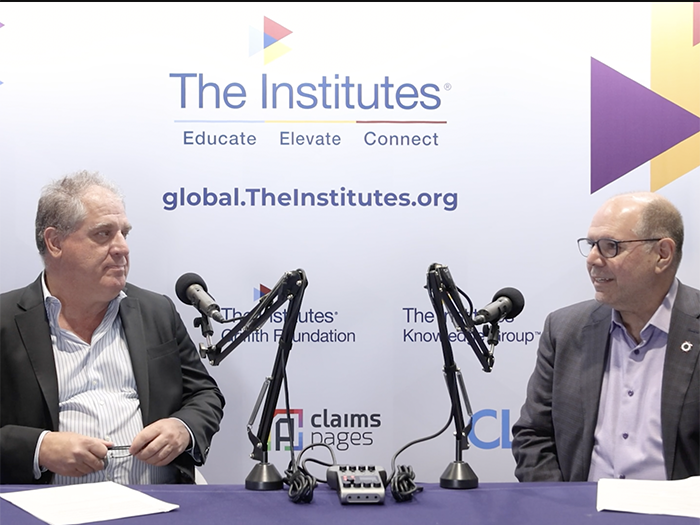Introducing the 2025 Theo Award Winners

More than a century ago, Theodore Roosevelt stood before Congress and declared that America’s workers deserved protection from the hazards that claimed lives and livelihoods in the nation’s rapidly industrializing economy.
His vision, along with the tireless advocacy of reformers like Frances Perkins, laid the groundwork for what would become the modern workers’ compensation system—a fundamental promise that those who build America’s prosperity should not bear the cost of workplace injury alone.
Today, the 32 organizations recognized with the 2025 Theo Awards embody that same unwavering commitment to worker protection, but with innovations Roosevelt and his contemporaries could scarcely have imagined. 
From AI systems that predict and prevent warehouse injuries in the retail industry to biopsychosocial treatment programs that help first responders heal from PTSD at the City of San Diego, these winners represent the evolution of workplace safety from reactive compensation to proactive prevention and holistic care.
The challenges these organizations faced mirror the complexity of modern American work. AARP navigated service disruptions to ensure injured employees received timely care during a pandemic recovery. American Airlines developed sophisticated return-to-work programs spanning all 50 states and multiple collective bargaining agreements. FedEx consolidated four separate risk management teams into a unified enterprise approach while maintaining their people-first culture.
Each faced the fundamental question that Roosevelt grappled with: How do we protect workers while enabling the economic activity that sustains communities?
Their solutions reveal both remarkable innovation and timeless principles. At Bernards construction company, safety protocols are embedded in every subcontract agreement, creating a culture where “looking out for each other is part of our daily routine.” Aramark transformed their workers’ compensation program into a hospitality experience, ensuring injured employees receive the same care the company provides to customers.
The Port of Houston Authority achieved a 77% reduction in medical costs through strategic partnerships and aggressive provider negotiations, proving that financial stewardship and worker care can advance together.
Perhaps most striking is how these organizations addressed the human elements that Roosevelt’s era reforms could not fully anticipate. SHARP HealthCare‘s biopsychosocial approach recognizes that healing involves more than medical treatment — it requires addressing the psychological and social factors that affect recovery. Starbucks implemented whole-person wellness programs to help their 175,000 employees navigate not just workplace injuries, but the broader challenges that impact their ability to heal and return to productive work.
The technological innovations showcase American ingenuity applied to worker protection. Northeast Precast developed custom software systems that house everything from safety training to injury reporting in individual employee profiles. Overhead Door Corporation reduced incident reporting time from two hours to ten minutes through integrated risk management systems. PepsiCo used wearable sensors to analyze delivery driver ergonomics and validate equipment investments that reduced injury risk by double digits.
Yet technology serves the deeper purpose Roosevelt envisioned: ensuring that work enhances rather than diminishes human dignity. When North Carolina maintained workers’ compensation services for 265 injured employees across hurricane-devastated counties, or when WeGo Public Transit reduced lost workdays by 21% while improving employee satisfaction, these achievements reflect the same moral imperative that drove the original reformers.
The 2025 Theo Award winners prove that the vision Roosevelt articulated — of workplaces where people can earn their livelihoods without sacrificing their health or security — remains both relevant and achievable. Through data-driven prevention, innovative treatment, and unwavering commitment to worker welfare, they honor the legacy of those early reformers while writing the next chapter of American workplace safety excellence. &








